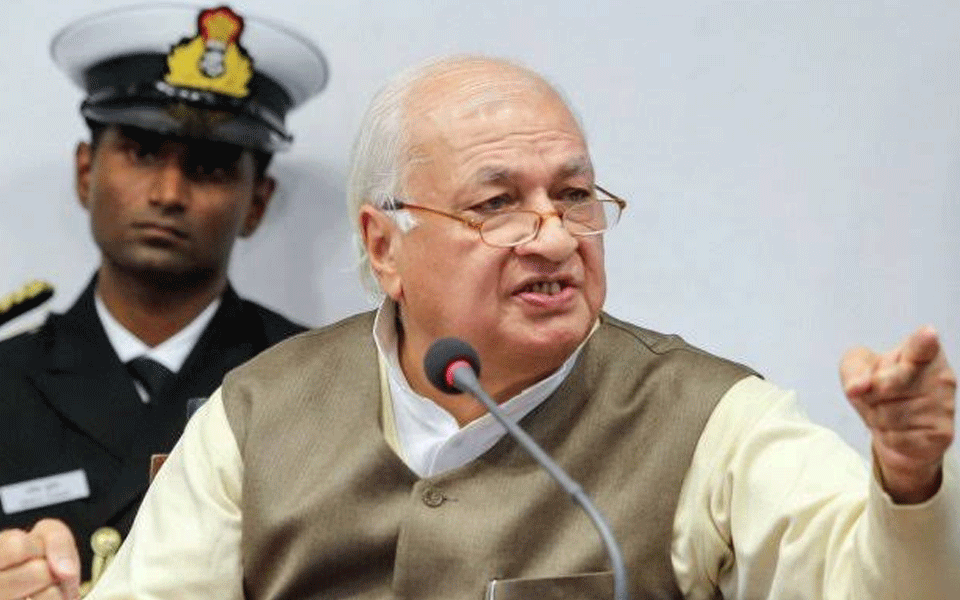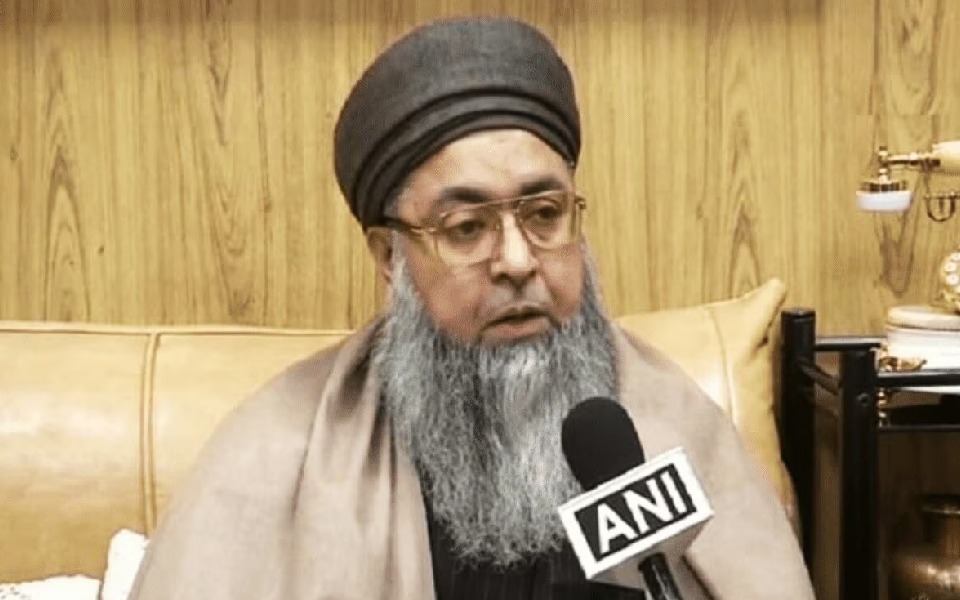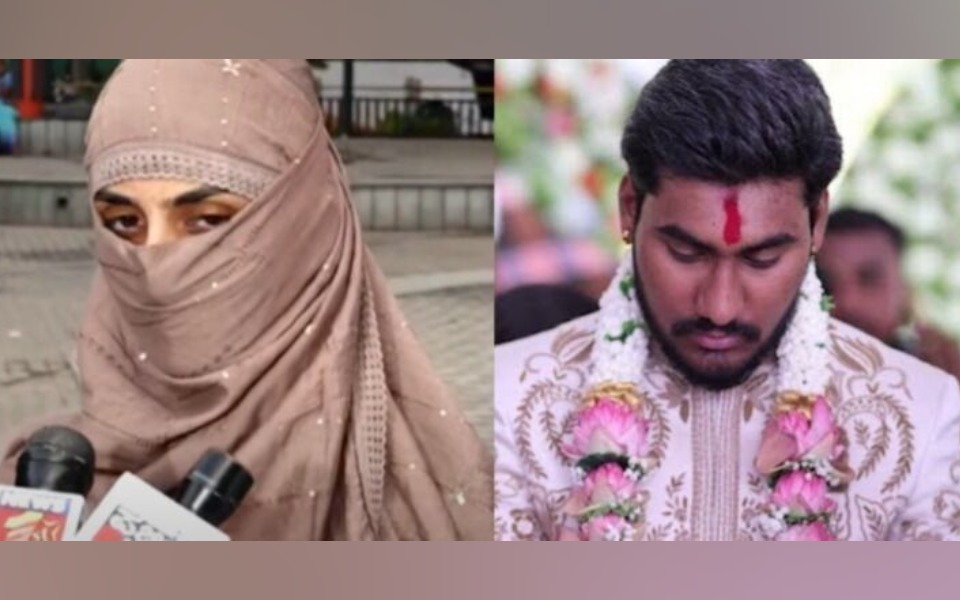New Delhi (PTI): Strongly refuting allegations of politicising his constitutional position, Kerala Governor Arif Mohammed Khan has said he is ready to resign if there is even one instance of him appointing anybody belonging to organisations that are considered "troublesome politically" by the state government.
As the bitter battle between him and the ruling LDF continues in the state, mainly over the appointment of Vice Chancellors to the universities, Khan also asserted that his job is to see that the business of the government is transacted in accordance with the law.
In an interview with PTI here this week, Khan, who has been the state's Governor for three years now, rejected concerns that his position was being politicised.
"Where is the politicisation? I said that for the last three years, you have been saying that I have been implementing RSS agenda. Give me one name, just one instance where I have appointed anybody belonging to organisations whom you find troublesome politically, RSS, BJP... give one name whom using my authority, I have named anybody on anybody or university, I will resign.
"It can be politicisation... if one does such things. I have not done nor is there any pressure on me to do so," he said.
Amid the ongoing tussle between him and Chief Minister Pinarayi Vijayan-led government, Left parties on Tuesday conducted a protest march to the Raj Bhavan in the state capital Thiruvananthapuram.
CPI(M) General Secretary Sitaram Yechury had said that there is a situation where the office of the Governor is pitted against the state governments.
"This matter of controlling education is an important aspect of the BJP-RSS political design to convert this secular democratic India into a fascistic Hindutva Rashtra of their liking and for that, they require to control education and the consciousness of our youth," Yechury had said.
In response to a question on his announcement last month that Finance Minister K N Balagopal "has ceased to enjoy my pleasure", the Governor during the interview said the minister tried to stoke the "fire of provincialism" with his comments.
Khan, in an unprecedented action that attracted strong criticism from the state's ruling as well as Opposition parties, had said that a minister who deliberately violates the oath and undermines the unity and integrity of India "cannot continue to enjoy my pleasure". He had also sought "constitutionally appropriate" action against Balagopal and the demand was firmly turned down by the chief minister.
Elaborating on the issue during the interview, the Governor said that he had not withdrawn the pleasure just because the minister said something against him.
"He (Finance Minister) said how a person born in UP can have an understanding of the education system of Kerala. He is trying to stoke the fire of provincialism, of regionalism. He is challenging the unity of India... He is challenging the system, he is challenging the unity of India," Khan said.
He also noted that if somebody from Kerala tries to stoke the fires of provincialism, "how it will affect the Keralites working outside the state?".
About the minister still continuing in the position, the Governor said, "I do not have the power to remove him because it is the choice of the Chief Minister but I will at least let the people of Kerala know. This much I should do in order to discharge my duty, oath which I have taken to serve the interests of the people of Kerala".
In connection with the earlier episode of re-appointing the Kannur University Vice Chancellor which was cleared by him, the Governor said that he had admitted that he was wrong.
"The Advocate General, if you speak in moral and ethical terms, he should have resigned by now. It was he who misled me to believe that what they are asking me to do is not illegal... I put it on the file that what you are asking me to do in my opinion is not proper, it is not legal, it is irregular," Khan said.
Let the Truth be known. If you read VB and like VB, please be a VB Supporter and Help us deliver the Truth to one and all.
New Delhi: In a rare and widely discussed outreach, Rashtriya Swayamsevak Sangh (RSS) chief Mohan Bhagwat met over 50 Muslim religious leaders and scholars at Haryana Bhawan in New Delhi on Thursday. The three-and-a-half-hour meeting was hosted by Umer Ahmed Ilyasi, the Chief of the All-India Imam Organisation, and is being described by some as an effort to build bridges between India’s majority and minority communities.
But Ilyasi, who facilitated this high-profile interaction, is no stranger to public attention—or controversy. His political and religious statements over the years have drawn criticism from several quarters within the Muslim community, prompting fatwas, threats, and frequent allegations of pandering to majoritarian narratives.
The meeting with Bhagwat, which included representatives from Deoband Madrasa, the Chief Imams of Gujarat and Haryana, and the Grand Muftis of multiple states, was framed as a trust-building initiative. “We may follow different faiths, but we are all Indians,” Ilyasi told IANS, describing the dialogue as a platform to promote national unity and social cohesion.
However, many observers have noted that this is not the first time Ilyasi has aligned himself with positions that are seen as diverging sharply from mainstream Muslim sentiments.
Statements That Stirred Reactions
In 2017, speaking to reporters in Indore, Ilyasi called for a nationwide ban on cow slaughter and demanded that the cow be declared a national animal. While he also condemned mob lynchings related to beef consumption suspicions, his support for a uniform cow protection law was received critically within sections of the Muslim community, where beef consumption remains culturally and religiously permissible.
His support for the ban on mosque loudspeakers during a 2022 interview with ANI was another instance that did not sit well with several Muslim clerics and organisations. Around the same period, he controversially linked the Karnataka hijab row to interference from “foreign bodies and terror groups like Al-Qaeda,” saying such events were attempts to “malign the country.”
In March 2025, on the occasion of Eid-ul-Fitr, Ilyasi released a video urging Muslims not to offer prayers on public roads, calling instead for discipline and restraint in religious observances. While the appeal may appear practical to some, others saw it as aligning with growing pressure from right-wing groups who object to public prayers by Muslims.
The backlash against Ilyasi’s public statements has been strong and visible. In January 2024, after his visit to the Ram Mandir ceremony in Ayodhya, a group of muftis issued a fatwa against him, branding him a ‘kaafir’ (infidel) and demanding an apology. Ilyasi dismissed the criticism, stating bluntly that India is not an Islamic state and Sharia law does not apply here.
His earlier praise for Mohan Bhagwat in September 2022, calling the RSS chief the “Rashtra Pita” (father of the nation) and “Rashtra Rishi” (national sage), had sparked severe backlash and even death threats. Multiple reports confirm he received “Sar Tan Se Juda” (beheading) threats from within the Muslim community. Despite these, Ilyasi stood firm, publicly saying that those who could not tolerate his stand “should perhaps go to Pakistan.”
While Ilyasi holds the position of Chief Imam of the All India Imam Organisation, critics point out that the organisation is not widely representative of India’s diverse and decentralised Muslim religious leadership. Many prominent Muslim groups, including those from Deoband and Barelvi backgrounds, have either distanced themselves from his remarks or remained silent on his engagements.
He has also made headlines in the past with statements that left many confused. In one interview, he controversially claimed that Muslims are descendants of Lord Krishna, a remark that drew sharp reactions across religious lines and lacked theological grounding.
The recent meeting with the RSS, timed with the Sangh Parivar’s centenary celebrations and the 50th year of Ilyasi’s organisation, signals a broader strategy at play. While the optics may suggest communal harmony, critics say such outreach efforts often come with political subtext, especially when facilitated by figures with a record of leaning into government-aligned narratives.
During the Thursday meeting, according to sources, no specific issues such as the Gyanvapi case or hijab row were discussed. Instead, themes like national integration, social unity, and ongoing dialogue between communities were explored. Ilyasi later stressed that the meeting was not a conclusion, but a beginning of sustained engagement.
In the current climate of increasing religious polarization, the role of clerics like Umer Ahmed Ilyasi is bound to provoke debate. For some, he remains a divisive figure, whose positions do not reflect the broader concerns of Indian Muslims.





